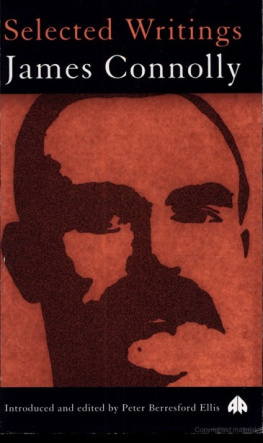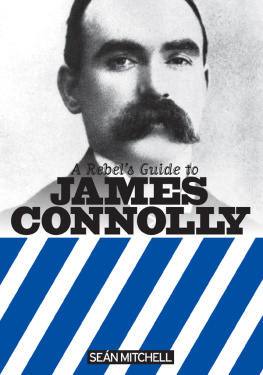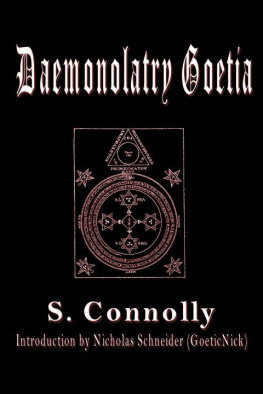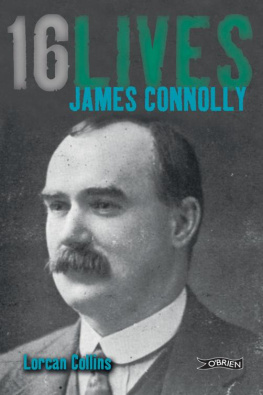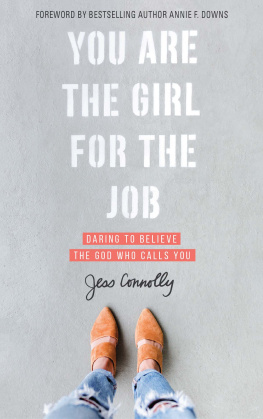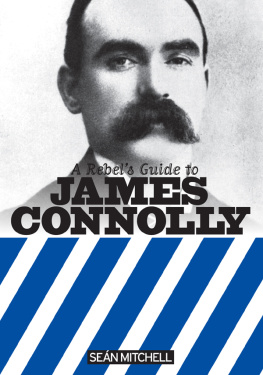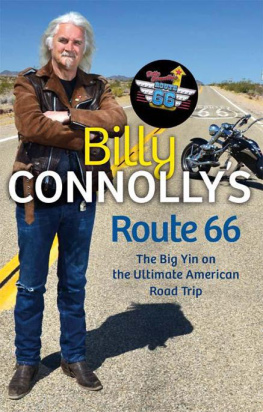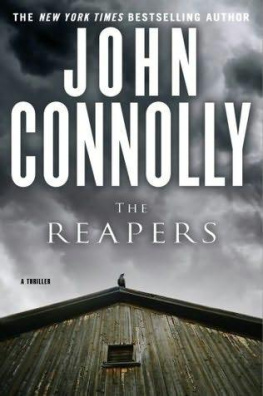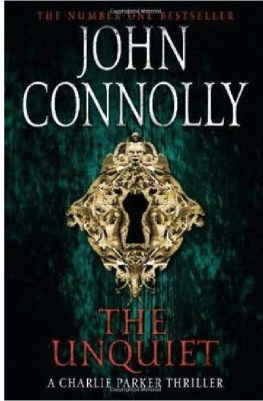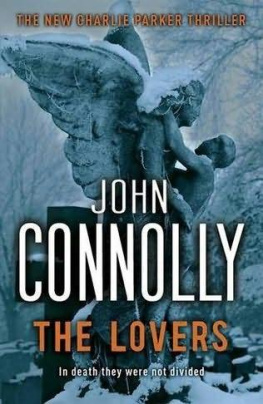James Connolly - Songs of Freedom: The James Connolly Songbook
Here you can read online James Connolly - Songs of Freedom: The James Connolly Songbook full text of the book (entire story) in english for free. Download pdf and epub, get meaning, cover and reviews about this ebook. year: 2013, publisher: PM Press, genre: Romance novel. Description of the work, (preface) as well as reviews are available. Best literature library LitArk.com created for fans of good reading and offers a wide selection of genres:
Romance novel
Science fiction
Adventure
Detective
Science
History
Home and family
Prose
Art
Politics
Computer
Non-fiction
Religion
Business
Children
Humor
Choose a favorite category and find really read worthwhile books. Enjoy immersion in the world of imagination, feel the emotions of the characters or learn something new for yourself, make an fascinating discovery.

- Book:Songs of Freedom: The James Connolly Songbook
- Author:
- Publisher:PM Press
- Genre:
- Year:2013
- Rating:3 / 5
- Favourites:Add to favourites
- Your mark:
- 60
- 1
- 2
- 3
- 4
- 5
Songs of Freedom: The James Connolly Songbook: summary, description and annotation
We offer to read an annotation, description, summary or preface (depends on what the author of the book "Songs of Freedom: The James Connolly Songbook" wrote himself). If you haven't found the necessary information about the book — write in the comments, we will try to find it.
Songs of Freedom: The James Connolly Songbook — read online for free the complete book (whole text) full work
Below is the text of the book, divided by pages. System saving the place of the last page read, allows you to conveniently read the book "Songs of Freedom: The James Connolly Songbook" online for free, without having to search again every time where you left off. Put a bookmark, and you can go to the page where you finished reading at any time.
Font size:
Interval:
Bookmark:
Songs of Freedom
The James Connolly Songbook
James Connolly
Edited by Mat Callahan
Preface by Theo Dorgan
Foreword by James Connolly Heron

Songs of Freedom: The James Connolly Songbook
James Connolly
Edited by Mat Callahan
PM Press 2013
All rights reserved. No part of this book may be transmitted by any means without permission in writing from the publisher
PO Box 23912
Oakland, CA 94623
www.pmpress.org
Cover design by John Yates
Layout by Jonathan Rowland
ISBN: 978-1-60486-826-5
Library of Congress Control Number: 2013911514
10 9 8 7 6 5 4 3 2 1
Printed in the USA on recycled paper, by the Employee Owners of Thomson-Shore in Dexter, Michigan.
www.thomsonshore.com
by Theo Dorgan
by James Connolly Heron
by Mat Callahan
________________
Connolly did not identify the composer of the song, Claude Joseph Rouget de Lisle; see Connollys note.
The Watchword and Watchword of Labor are the same song, according to the lyrics.
Great, Brave, Undaunted James Connolly
IN 1903, AGED 35, James Connolly applied for membership of the Socialist Labour Party of Great Britain. On the line marked Occupation, he wrote: Agitator.
At Christmas that same year, in New York, he wrote:
Tis Christmas Day in Ireland and I am sitting here alone
Three thousand miles of ocean intervene
And the faces of my loved ones in my little Irish home
Come glancing in and out my thoughts between.
Agitator was the blunt truth, because that is what Connolly set himself as a task: to agitate, to stir up, to raise dormant passions, to awaken a hunger and thirst for liberty and justice.
And at the same time, this sentimental, even mawkish verse shows a man capable of being stirred by an old-fashioned kind of loneliness, and reaching for a commonplace verse form to express his sentiments.
When a persons character exhibits this kind of swing, from blunt, pugnacious truthfulness to sentimental longing, we may be sure at the very least that here is a human being who shares with us a range of passions and foibles, who embodies perhaps real contradictions, who cannot, in any case, be reduced to a cipher.
The trouble with Connolly in our time is that he has become a hollow icon, a kind of ancestor figure to the Left, of no real substance to many who invoke his name save as a touchstone of legitimacy in a certain kind of politics.
Connolly the man, the family man, the ruthless organiser, the stern Union boss, the wounded martyr who loved a good song, the man who had good time for Yeats and Lady Gregory but who set up and led the Irish Citizen Army as a serious military force formed for armed revolutionthat Connolly, that complex man, has been forgotten or buried under a hollow mask.
What Left politicians of the present moment, and I include the leaders of the Trade Union movement in this category, most assuredly do not want is a revolutionary politics of the kind that Connolly worked all his life to establish.
I do not say they are wrong: perhaps our politics has evolved to the point that what Connolly laboured for can be more readily achieved in a social democratic process, though I wonder if perhaps we have been waiting a little too long for evidence of this.
It seems to me disrespectful to the mans memory, to claim him in the name of a politics he did not profess. It seems to me more than a little unjust to neglect or elide the full human rounded character of the man as he actually was.
Gathering together these songs of Connollys is a useful way of restating the mans essential humanity. Of the tunes, the borrowed ones are the best, and while I could not quarrel with the sentiments of the lyrics, I do quarrel with the fluffy sentimentality of the style. Then, tastes change, I must allow for that, and such reservations aside it seems to me valuable to have these songs in wider circulation, both as evidence of what was once thought and sung, and as a spur to make new the values and aspirations, the hopes and dreams that the songs most assuredly aim to embody.
Connolly did not set out to make his life as a songmaker, but his large heart saw the need to supply a want in the national life, a want of good songs that spoke of liberty and justice, that scorned slavery and injustice. He would be pleased, I think, to know how many such songs have entered into our repertoire, and how many are being written and sung today, and it may well be that he would gladly have left this side of the business to men and women with more talent for it than he possessed, had they been there for him to find.
James Connolly loved his wife and family, he pined for them when they were separated; he loved his class, perhaps more in the abstract than in the concrete, as he loved justice, as he loved to struggle, as he loved to agitate. All of these things he took very seriously, as he took songs, and poems, and the theatre seriously. When he wrote We only want the Earth, he meant it. The earth, and all its fruits, its arts and pleasures as well as ownership of the means of production. I have no evidence for it, but I am certain he would have approved of Bread and Roses as a profound and delightful motto.
He was born in Edinburgh, he served seven years in the British Army, he gave seven years in the USA as a labour organiser, and he gave his life for this country that he loved, cheerfully as far as we know, certainly with full consciousness.
He knew us all too well: Despite all seeming to the contrary we assert that Ireland is not really a revolutionary country. Ireland is a disaffected country which has long been accustomed to conduct constitutional agitation in revolutionary language, and what is worse, to conduct revolutionary movements with due regard to law and order.
And yet, it was for this country, for its poor and its powerless, that he laid down his life. Just as he wrote these songs to put heart into working men and women throughout the world.
Perhaps we might do him the honour of thinking about his real life? Perhaps we might stir ourselves from our glib invocations of a plaster saint and consider carefully and with respect his life as he actually lived it, his values and his writings?
With a song or two of Connollys on our lips, we might well begin by considering these fateful words: Ireland without her people means nothing to me.
Theo Dorgan,
Dublin 2012
Songs of Freedom Project
COMRADES,
I am delighted and consider it a great honour to be given this opportunity to contribute in a small way to this worthy and timely project in tribute to my great-grandfather.
The original James Connolly Songbook was based on a selection of songs performed in 1919 by comrades of Connolly to commemorate the anniversary of his birth. The concert was to take place in the Mansion House but was banned by the authorities, necessitating a move to the Trades Hall nearby. The concert went ahead. While police and workers clashed on the street outside, the singing of revolutionary songs could be heard from within the building. This mirrored, of course, songs sung by the volunteers during the course of The Rising, most notably the defiant singing of The Soldiers Song as they fled the burning GPO.
Such is the power of song.
Congratulations and thanks are due to all involved in this enterprise. It is entirely fitting that the project takes place on the centenary of the 1913 lock out. I am the proud holder of a medal presented to my great-grandfather in the aftermath of that great event by the Independent Labour Party of Ireland marked Dublin Labour War 19131914 and bearing the inscription A Felons Cap is the Noblest Crown an Irish Head Can Wear.
Next pageFont size:
Interval:
Bookmark:
Similar books «Songs of Freedom: The James Connolly Songbook»
Look at similar books to Songs of Freedom: The James Connolly Songbook. We have selected literature similar in name and meaning in the hope of providing readers with more options to find new, interesting, not yet read works.
Discussion, reviews of the book Songs of Freedom: The James Connolly Songbook and just readers' own opinions. Leave your comments, write what you think about the work, its meaning or the main characters. Specify what exactly you liked and what you didn't like, and why you think so.

